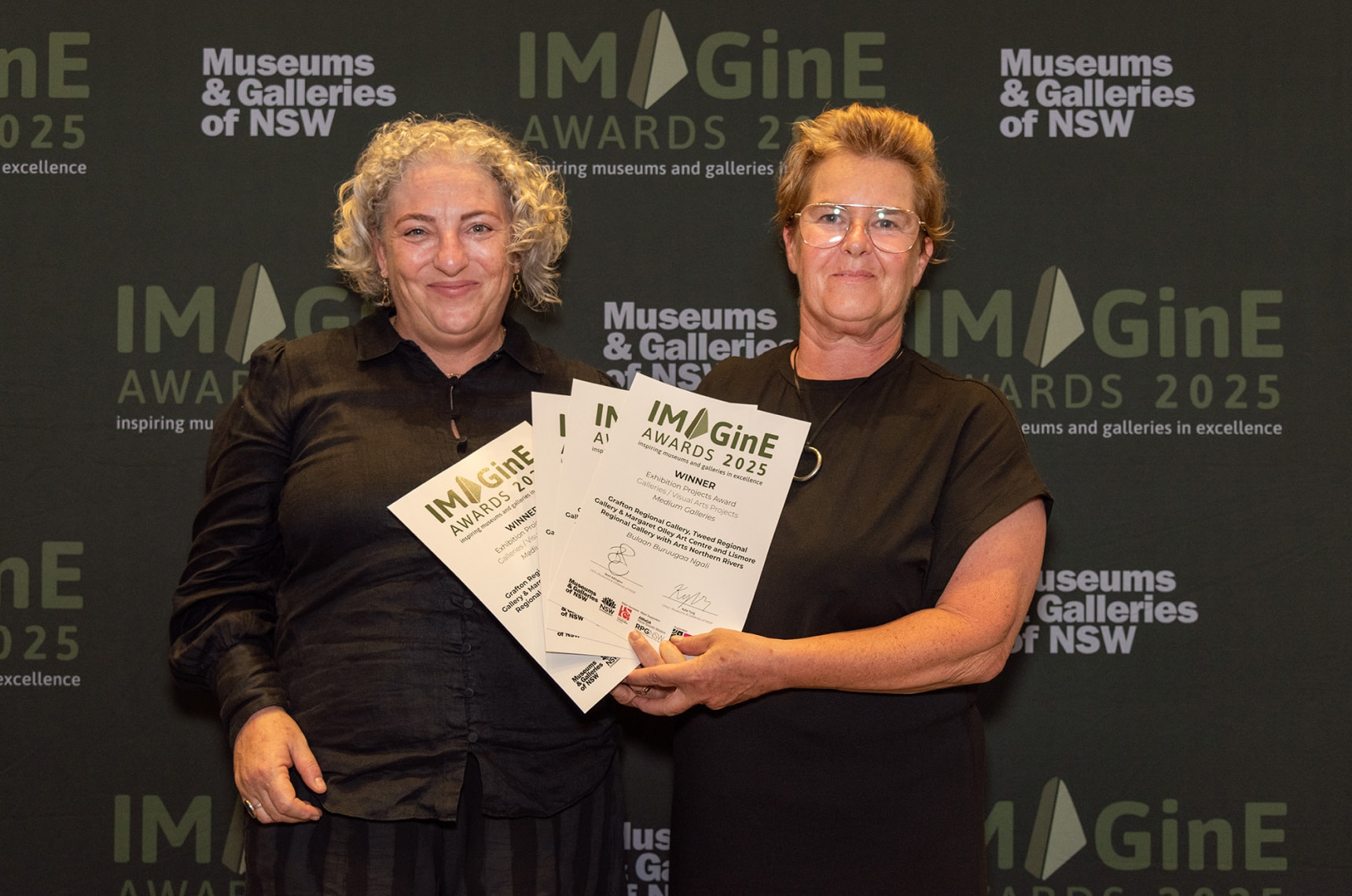Concerns Over the Closure of Arts Degrees at Southern Cross University
Arts Northern Rivers, together with Museums & Galleries of NSW, and National Association for the Visual Arts (NAVA) are voicing deep concern at the recent announcement of the closure of Southern Cross University’s standalone Bachelor of Arts degree, as well as degrees in contemporary music, art and design, or digital media.
This is incredibly disappointing, and ends a deep legacy of arts education here in the Northern Rivers at university level. This recent decision represents a troubling trend not only in the Northern Rivers community but also across the nation and globally. This shift threatens the very fabric of our cultural identity, particularly in the Northern Rivers, renowned as a vibrant creative hotspot with demonstrated legacy.
The decline of arts degrees is not an isolated incident. We are witnessing a broader demise of tertiary arts education worldwide, including in the UK. As governments, particularly at the federal level, move away from supporting humanities, liberal, and creative arts, we face a critical juncture. The emphasis on vocational training overlooks the vital role that arts and culture play in fostering creativity, critical thinking, and social cohesion.
Our society is increasingly oriented toward vocational training, often at the expense of holistic education. While vocational skills are important, they must be complemented by a strong foundation in the arts. Arts education cultivates innovative thinkers who contribute to diverse fields, from technology to business. By neglecting this balance, we risk stifling creativity and limiting our potential for growth.
National Policy Considerations
The recent release of the national cultural policy, REVIVE, emphasises the importance of investment in the arts. However, the closure of arts degrees contradicts this initiative. We advocate for a vision where arts and culture education is seen as integral to our national identity and economic vitality. The arts are not just an optional extra; they are essential for a thriving society.
Given cultural and creative activities contributed $122.3 billion to the Australian economy in2019–20 (Bureau of Communications, Arts and Regional Research, October 2022), career pathways need to be supported to ensure this economic value is not lost.
Southern Cross University’s decision comes despite evidence presented in Service andCreative Skills Australia (SaSCA’) Workforce Planning Report for the Arts, Shaping Tomorrow, which highlights the importance of providing regional students with local training and education opportunities to sustain a viable skills pipeline for regional NSW.
Cutting these essential arts programs exacerbates critical skills shortages across the sector. Without specialised training, competitive salaries, and accessible education, workforce attrition will worsen, further destabilising the creative sector, and reinforcing the misconception that art is not a viable career. This perception, coupled with limited career pathways, restricts artists’ opportunities to build sustainable careers and diminishes the sector's capacity to retain talented practitioners.
The Museums & Galleries of NSW 2022 Sector Census found that there were over 3,000people employed in the museum and gallery sector in NSW alone. Many of these people started their careers with studies in art schools.
On 30 October 2024, cultural think tank, A New Approach, released their new Insight Report, Transformative Edge 2024, which found that: “culture and creativity (are) the ‘edge’ we have been looking for to rebuild social cohesion, strengthen our economies, reconnect our communities and help us to lead healthy, safe and sustainable lives.”
Local Implications
The closure of these programs will have a direct and tangible impact on the Northern Rivers community and its industries. This is a community still recovering from bushfires, storms, floods, the pandemic, and the ongoing cost-of-living crisis; this news only compounds those challenges.
Arts Northern Rivers are currently in the last stages of completing its regions mapping on who and what the creative industries are; Who We Are, with the report finding the Northern Rivers occupies the largest cultural sector in regional NSW with:
- 3,844 cultural and creative workers, who work in creative roles in the cultural sector as their main job, along with 1,097 other workers in the culture sector, and 351 creatives embedded in other industries (ABS, Census, 2021).
- The largest population of cultural workers in NSW, outside of Sydney, with 4,941cultural workers, equivalent to 1.5% of the population (relative to regional NSW average of 1.1%).
- 40% growth in cultural and creative employment between 2016 and 2021. This equates to an average annual growth rate in Northern Rivers creatives of 8% per year. In comparison, there was 4% growth in national creative employment, and 2% growth in the Australian workforce generally.
- 112,000 makers, creators and participants in arts and culture, equivalent to 36% of the population, for whom it is a second job, supplementary income, community service or hobby.
The identity of the Northern Rivers as a creative hub is at stake, affecting not only the cultural landscape but also key sectors like tourism, retail, and hospitality. A vibrant arts community attracts visitors, supports local businesses, and enhances the quality of life for residents. Given the region's recent flood devastation and slow recovery, this is yet another thumping blow.
We implore Southern Cross University to reverse its decision, and for the Federal Government, to reconsider the implications of these closures. We call for an investment in the arts to ensure that the Northern Rivers continues to nurture creativity, innovation, and cultural expression.
Let us advocate for a future where arts education is valued and prioritised as a crucial pillar for the prosperity of our community and nation.


.jpg)
.jpg)
.jpg)

.jpg)
.jpg)

